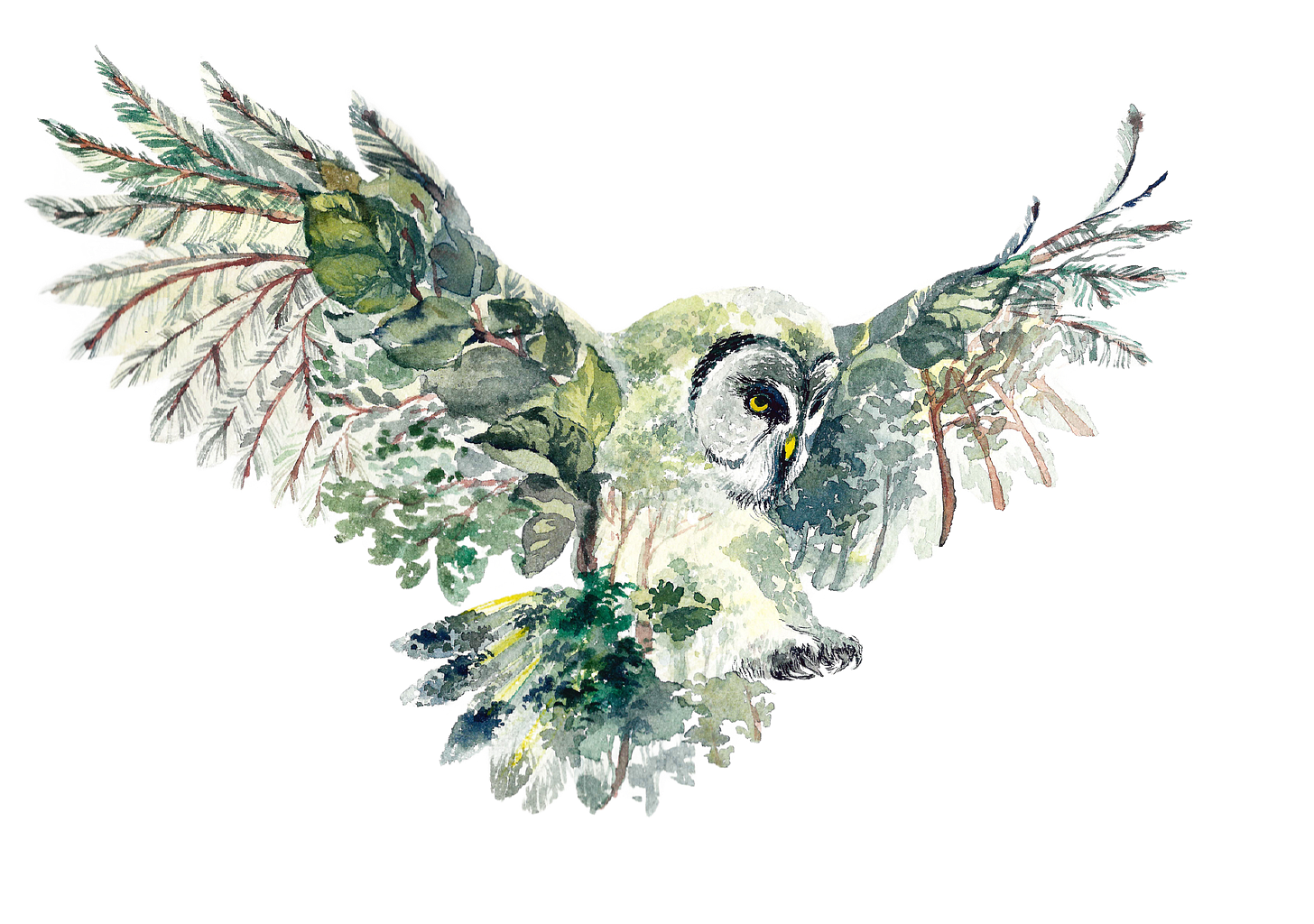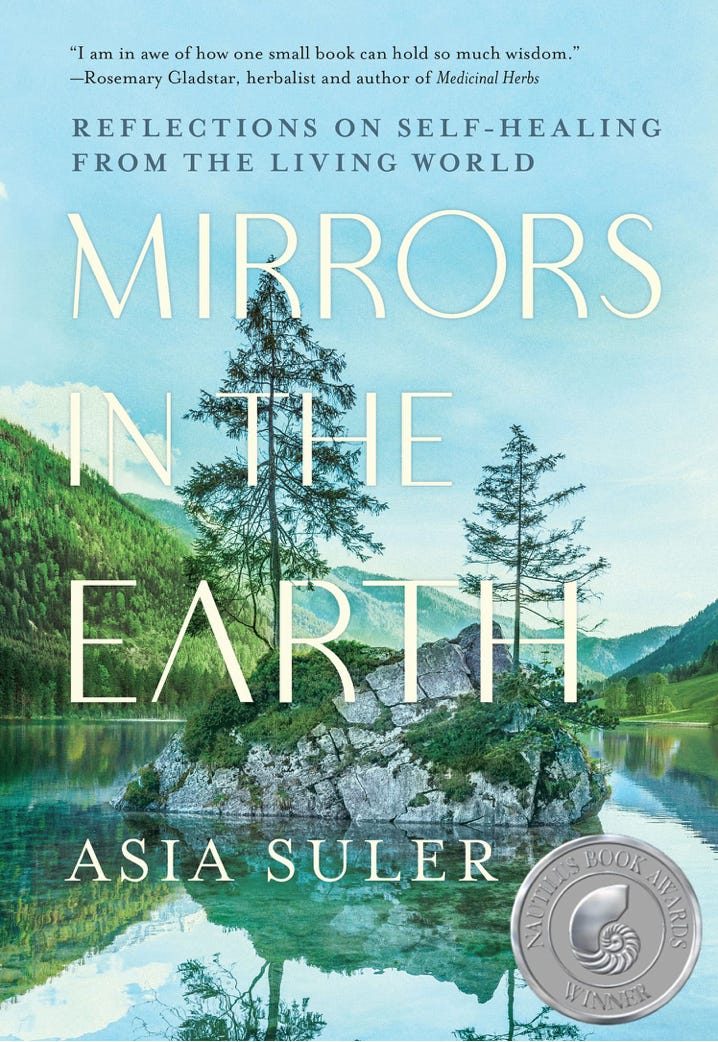As with so many convoluted internet pathways, I can’t quite remember how Sasha Chapin’s extremely worth-your-time post on Deep Okayness resurfaced recently. What I can remember, however, is exactly where I was when I initially read it, almost two years ago. (Do you also remember where and when you first read something impactful, even if that was several years in the past? It’s a quirk of my brain that I almost always do.)
Sasha’s path is toward a relaxed self-acceptance that gives a deeply okay human some space to heal and create. As he writes:
Deep Okayness is not the feeling that I am awesome all the time. Instead, it is the total banishment of self-loathing. It is the deactivation of the part of my mind that used to attack itself. It’s the closure of the self as an attack surface. It’s the intuitive understanding that I am merely one of the apertures through which the universe expresses itself, so why would I hate that? It’s the sense that, while I might fuck up, my basic worth is beyond question—I have no essential damage, I am not polluted, I am fine.
I also remember exactly where I sat while reading Asia Suler’s gentle, spirit-salve book, Mirrors in the Earth, around this time last year. I follow Asia here on Substack where she writes about the mothering journey, and I never miss reading a post. She’s so good. But I directly credit her book with helping to get me to something like Sasha Chapin’s state of Deep Okayness.
These days, I’ve jettisoned all social media from my life, which has been a real (and hard-fought) victory. The drawback is that I can no longer follow the occasional path out of the Meta and Birdy/Musk dumpster fires that leads somewhere really, really cool. That’s how I found Asia’s work.
I came across a quiz she’d posted, maybe on Instagram, purporting to help me discover my “Earth-healing archetype.” As an overly logical (maybe pedantic?) lawyer, I was undoubtedly a bit skeptical. I took the quiz anyway. I was floored.
I learned that in Asia’s schema, I’m a Wellspring. One of my assigned lessons on Earth, consequently, is to learn that I’m allowed to just be. My existence, alone, justifies itself. Not my legacy, not my impacts. Not whether I save a particular forest from the chainsaws, or help to prevent a vulnerable species from going extinct. It is enough that I am here. It is okay for me to just be.
Not that I won’t keep working to save forests from logging, or species from extinction. I will. But even if I didn’t, I’d still be okay.
It’s kind of hard to overstate how much I have, for decades, been certain that my worth as a human depended on recognition for external achievements. To just be was to be lazy, to be a waste of space.
Thus in my youth, I was a straight-A student and later, a professional ballet dancer. Then I was the up-and-coming young biologist at the U.S. Forest Service, then I graduated at the tip-top of my class in law school. After that, I took an internship with a justice on the state Supreme Court, then with a notoriously tough federal judge, then was hired to be a personal research attorney for a brilliant jurist, a former law professor who was making waves in environmental and workers’ rights jurisprudence. And all along, I was ill, I was panicky, I was irritable.
When I finally felt like I’d proven myself in the legal field, I left the courts to work with an elite legal team practicing forest and wildlife defense. We litigated a lot. We won a lot.
Then our forests burned in massive blazes. Timber companies wanted to sweep in and clearcut the burned forests. They wanted to go big, really big. Hundreds of thousands of acres. They wanted to move fast, to get the burned (and unburned) trees out of the forest before they started to decay — or before any lawsuits challenging their rampant destruction could wend their way through the courts.
It was an avalanche of time-pressured timber sales and loggers heading into the deep woods with heavy equipment before our little team could get our ducks lined up to file suit. We were so behind the curve of industrial, investor-driven logging: underfunded, understaffed, outgunned.
My heart broke every week. My debilitating chronic migraines flared up. I was sick more days than I was well. I quit my job. I stopped practicing law. I felt like a failure. I was ashamed. I burned out. Hard.
When Asia Suler’s wellspring words — you’re allowed to just be — found their way into this shattered earth-defender’s inbox a few months later, I cried. Hard.
It’s still pretty bad some days. Some nights, too — I wake up at 3 a.m. with the sick pounding heart of a career failure, an inadequate parent, a terrible friend, an embarrassment. (“3AM Me” knows where it’s at. 3AM Me is the world’s expert on how much I suck.)
Still, in the past year, I’ve begun to internalize a new self-definition as a Wellspring, one who serves the Earth best by simply existing. Undoing 40 years of high-achiever conditioning, believing I could only prove my worth by accomplishing certain external goals, is probably a journey I’ll never complete. But I am further along the path to Deep Okayness than I could have hoped.
What concrete step actually helped the most? Leaving Asia’s auto-response email in my inbox, so I (still) see this subject line every single time I check email: You’re allowed to just be.1
You’re allowed to just be. Just be.
Ahh, I’d think. Okay. Okay. I’m okay. All I have to do right now is breathe.
Sure enough, in the past year, the less I’ve achieved by external measure, the more peace I’ve felt. The more I “do nothing all day”, i.e., read books and articles, scribble in my journals, walk in the woods — the more a wild spring of words bubbles up in me. My words. My truths. Truths I learned on the front lines of environmental destruction in the western U.S., truths about how I want to show up for Mother Earth. Truths that require me to sit still and listen, to think and write, to give up on doing, doing, doing. To focus on being. And to have the energy reserves to share my truths here.
Asia’s book and the work she shares on her website have impacted me so deeply — healed me — that I recommend this radiant writer unreservedly.
And Sasha’s Substack is consistently mind-expanding: his journeys into the deep are a wild ride, in the very best sense of that phrase.
Maybe someone reading this could use Asia’s gift here at the turning of the year, as I did this time last year. Maybe someone wants to jump on Sasha’s Deep Okayness train. I wish you bon voyage. 💚
If your email inbox ever feels overstuffed with Substack emails, you can turn off email notifications, which will allow you to receive new post notifications only when you visit the Substack app or website. This will prevent newsletters from filling up your email inbox, if like me, you’re subscribed to a LOT of writers. (If you don’t know how to do this, let me know, and I can list the steps for you.)
For me, this has been a crucial action toward reducing my own overwhelm: there are so many beautiful things I want to read here, but I need to be able to do so on my own schedule. Maybe this tip can help you find some serenity if email clutter disheartens you.









I'm still learning how Substack works, but I was scrolling my feed today when this post came up. I clicked on it and was floored. Rebecca, I am so profoundly honored by everything you've written here. Honored to be in connection with you, honored to reflect back to you the wellspring of your goodness, honored to witness the healing you bring to this world simply by being who you are. This post felt like finding a wrapped present underneath the evergreen tree of this year's Solstice. Thank you for everything you have reflected back to me here. It is a gift beyond measure, and beyond words. From my heart to yours.
Congratulations, Rebecca, on becoming a self-care survivor in a wilderness of stress. So many teachers, social workers, lawyers for the right side of history, etc., have to move on despite all the successes and good work. The work is overwhelming, not least b/c of the flood of empty communication and the endless task horizon . It's more than okay to move on, start over, find clarity and fresh air. Wonderful essay, thank you.